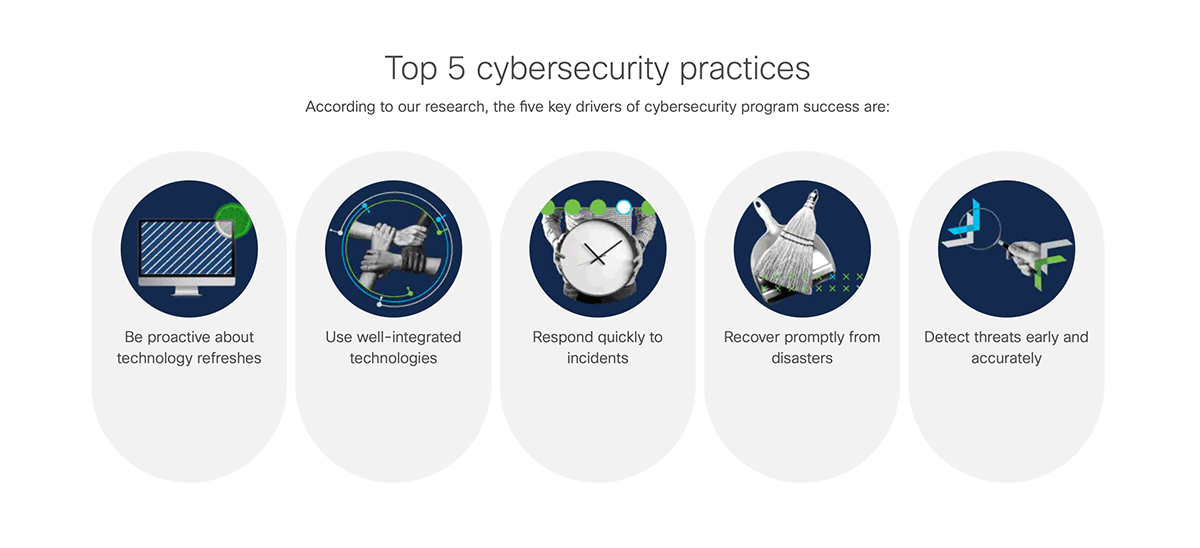Cybersecurity is one of the hot topics for every business and organisation. There are many threats, but just one security breach for any company is enough to turn a threat into a successful attack
Cisco defines security resilience as being able to protect the integrity of every aspect of business so it can withstand, not just survive, unpredictable threats or changes and emerge stronger. This is the ability to anticipate, withstand, recover from, and adapt to adverse conditions, stresses, attacks, or compromises on systems that use or are enabled by cyber resources.
In the latest global Cisco security study conducted among 4,700 participants, security resilience was top of mind for 96% executives. As many of 62% of them reported having already suffered major security incidents that impacted their business operations, mainly network or data breaches, system outages and ransomware events. Organisations that foster a culture of security identified increases in resiliency, especially with a mature, zero-trust approach.

In today’s business environment, work is done from anywhere, which means security must exist everywhere in order to fully protect the business. Traditional security approaches that trust anything (devices, users, infrastructure etc.) inside the corporate network can’t deliver that required level of protection. This has led to the emergence of an approach that eliminates blind trust. A zero-trust model establishes trust in users and devices through authentication and continuous monitoring of each access attempt, with custom security policies that protect every application.
In the latest global Cisco security study conducted among 4,700 participants, security resilience was top of mind for 96% executives. Organisations that foster a culture of security identified increases in resiliency, especially with a mature, zero-trust approach
The critical factors include employees, who should be treated as part of the solution, rather than a problem, as the study shows. This comes from executives and leaders who understand business operations and the importance of security resilience. They should endeavour to cultivate a culture of security throughout the organisation, because Cisco data shows that organisations that are able to do so will see a 46% boost in resilience. Security staff understand their role in the context of the organisation, while non-security staff know that they also have a role to play. This can be seen by the regular reporting of phishing attempts, potential malware, and other incidents. Security isn’t a negative topic in employee satisfaction surveys or exit interviews. Conversely, frequent security policy violations and workarounds are evidence of a poor security culture.
The simplification of the hybrid cloud environment supports a security resilience approach, as well as the protection of the whole network end-to-end.
Cisco Secure is built on the principle of better security, not more. It delivers a streamlined, customer-centric approach to security that ensures it’s easy to deploy, manage, and use — and that it all works together.
www.cisco.com
